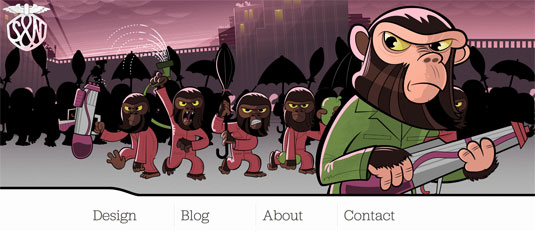3 ways freelancers can protect their money
Discover how freelancers can protect their finances and keep their clients happy.
Brad Weaver from Nine Labs will be at Generate London to help you make more money. He'll be hosting an all-day workshop on how to start and build a profitable design business, and in his session on pricing your work he'll look at specific ways to tackle pricing and profit in your business. Book now!
The world of finance can be a confusing place for freelancers, with many unsure where they fit in the market. Luckily web design expert Cole Henley is here to offer his experienced advice. Perfect for any freelancer, these tips will keep you and your client happy.
01. Contracts

Contracts help you outline payments on a project, how much you expect up-front to secure your time, how payments are to be scheduled, what value is due on completion and who owns the work until final payment is made.
Using a contract doesn't have to be expensive, and although a contract drafted by a lawyer will offer better protection, adapting a templated contract is better than not using a contract at all.
Contracts can be critical for ensuring cashflow through outlining payment schedules. Whether you are a freelancer or an agency, it is essential that you ensure a steady reserve of cash through prompt payment of completed work and securing deposits for work up-front.

02. Weekly billing
Cashflow was one of the reasons Andrew Clarke moved to weekly billing at Stuff and Nonsense; both for the agency's sake and for its clients.

"It's common for clients to make a deposit payment of between 25 and 33 per cent, and the balance of a project's costs on completion. This can put a strain on the cashflow of small and medium size businesses," says Clarke.
"Our SME clients appreciate paying weekly as it puts less strain on their cashflow than a large payment at the end of a project.
"Should they choose to change their mind or change direction, they know that they can roll those changes into an additional sprint and they also know the cost of that work in advance."
03. Balance your overheads

An important part of securing and sustaining work is knowing what to charge and making sure your rate is competitive, whilst being able to support your lifestyle.
This breaks down to understanding what you need to survive (your outgoings and overheads) as well as the rate you can command (the market).
Understanding our overheads is important. In the web industry, many of us can work from anywhere with a laptop and a wireless internet connection. However, this can be dangerous. We need to be realistic about the outgoings – both professional and personal – which need to be covered.
This will help keep some money in reserve for quieter periods, but also make sure you have enough saved for fulfilling your tax obligations. On this note, never underestimate the value of a good accountant. If you value your time they should be a worthwhile investment.
Want more advice on how building a profitable design business? Don't miss Brad Weaver's session and workshop at Generate London on 21-23 September. Get your ticket now! This article was originally published in net magazine issue 266.

Thank you for reading 5 articles this month* Join now for unlimited access
Enjoy your first month for just £1 / $1 / €1
*Read 5 free articles per month without a subscription

Join now for unlimited access
Try first month for just £1 / $1 / €1
Get the Creative Bloq Newsletter
Daily design news, reviews, how-tos and more, as picked by the editors.
